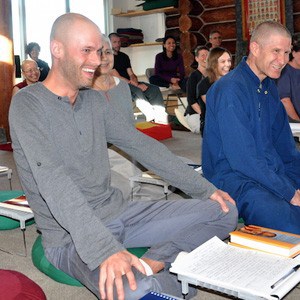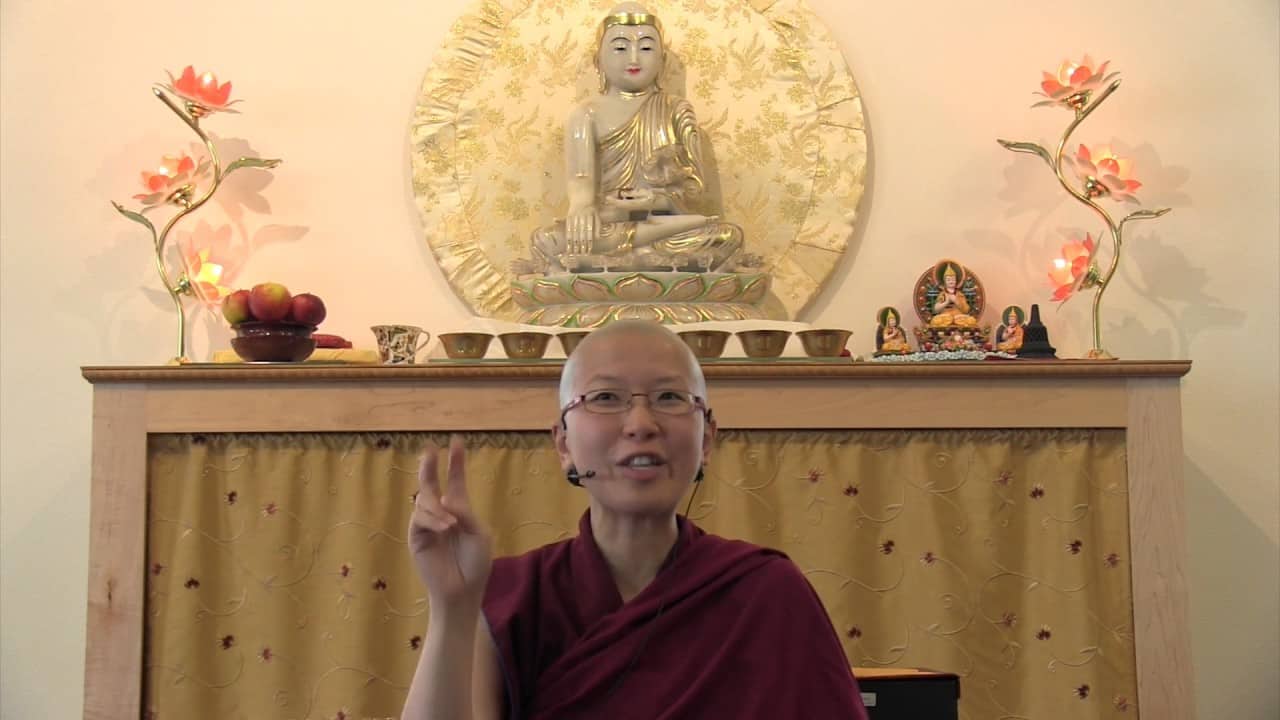Self-acceptance
Self-acceptance

Recently, I have been focusing on the practices of self-acceptance and self-empathy as taught in Nonviolent Communication. It seems to me that this is the first thing to do on the spiritual path. How can we develop compassion for others without first accepting our own physical and mental pain and connecting deeply with our own experience?
Ethical conduct and self-acceptance are related. When we lack self-acceptance, we may act in self-destructive ways. In this context nonvirtue can be seen as a desperate attempt to meet our needs at the expense of others and ourselves. Actions such as indulging in intoxicants and unwise sexual behavior harm all involved, serve to ignore our own hurt, and act as a refusal to accept our own suffering.
When I recall past times of intense mental suffering, I see that I not only lacked wisdom, but I also lacked an acceptance or even connection to my own experience. My pain was someone else’s fault and my happiness was someone else’s responsibility. There was a complete disconnect between my feelings and my own role in their rising.
Back then I thought that what I did, how I looked, and what people thought of me defined me; it was me. I refused to accept what I did and how I looked. I was going up and down emotionally based on what I thought others thought of me, while refusing to accept myself.
But does a mistake make me bad? Does my virtue make me good? Is basing my self-confidence on my imperfect behavior stable? Is relying upon my youth dependable? Is self-worth that depends on others’ opinions steady? Basically, I have to ask, “Is conditional acceptance enough?” Is acceptance based on impermanent things that are mixed with afflictions capable of bringing me lasting peace and contentment?
Only unconditional acceptance, love, and compassion for ourselves is reliable. Therefore, to achieve that goal, I must rely on the advice of those who have achieved unconditional acceptance themselves and those who are striving to do the same. They are the only dependable sources of refuge.
Imagine accepting the arising of unpleasant feelings and the passing away of pleasurable ones, thereby cultivating equanimity towards the whole of our experience.
Accepting my own suffering,
I have no wish to harm others.
Accepting their suffering,
I am compelled to help them.
May we not turn away from our experience whether pleasant or unpleasant, but turn towards it with wisdom. May we accept it, hold it, hold ourselves in care, and then keep extending that tenderness and love outward until it reaches all living beings.


